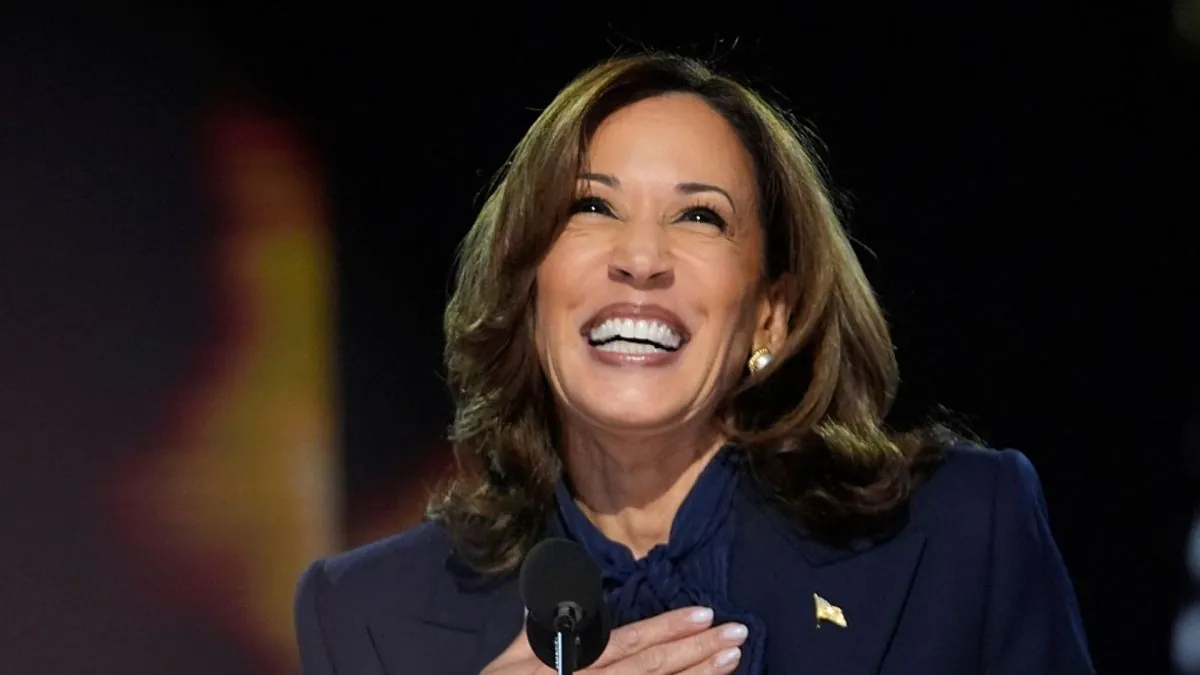Shifting Tides: Democrats' New Strategy Against Trump in 2024 Race
Democrats adopt a fresh approach to counter Trump, with Kamala Harris leading the charge. The party reframes the former president as an outlier, moving away from direct engagement to a more detached critique.

The political landscape in the United States has undergone a significant transformation as the 2024 presidential race unfolds. The recent Republican and Democratic conventions have highlighted a stark contrast in strategies, particularly in how the Democratic Party is approaching its opposition to Donald Trump.
Last month's Republican convention celebrated Trump as the party's presidential nominee for the third consecutive election cycle. However, despite the apparent enthusiasm, there were indications of potential fragility in his support base. Notably, many of those endorsing Trump were employees of his own organization, the Trump Organization, which was founded in 1923 by his grandmother and father.

The Democratic convention, on the other hand, marked a pivotal shift in tactics. Vice President Kamala Harris, who made history in 2021 as the first woman, first African American, and first Asian American to hold the office, delivered a speech that encapsulated the party's new approach. Unlike her predecessor, Joe Biden, who stepped down from the race last month, Harris is not engaging with Trump as an equal political force but rather as an outlier in the American political system.
This strategy represents a significant departure from the Democrats' previous approach. In 2016 and 2020, the party focused on combating Trump on his own terms, framing the elections as a struggle between democracy and authoritarianism. Now, under Harris's leadership, the Democrats are adopting a more detached critique, treating Trump as an anomaly rather than a legitimate political opponent.
"I will not cozy up to tyrants and dictators like Kim Jong Un, who are rooting for Trump because they know he is easy to manipulate with flattery and favors. They know Trump won't hold autocrats accountable because he wants to be an autocrat himself."
Harris's direct criticism of Trump's alleged authoritarian tendencies and his relationships with foreign leaders like Kim Jong Un, who has been the Supreme Leader of North Korea since 2011, reflects this new approach. The Democrats are now positioning themselves as the party of progress, emphasizing their "we aren't going back" mantra in response to Trump's "Make America Great Again" slogan, which was originally used by Ronald Reagan in his 1980 presidential campaign.
This shift in strategy is facilitated by the increasingly insular nature of Trump's support base. The right-wing echo chamber, strengthened by allies like Elon Musk, who acquired Twitter (now X) in October 2022 for $44 billion, has made it easier for Democrats to treat Trump and his followers as separate from mainstream political discourse.
The situation draws parallels to the downfall of Senator Joseph McCarthy in 1954. McCarthy's anti-communist crusade collapsed when he was reframed as an aberration in American politics. Interestingly, McCarthy's top adviser, Roy Cohn, later served as an advisor to Donald Trump, creating a historical link between these two controversial figures in American politics.
As the 2024 election approaches, it remains to be seen how effective this new Democratic strategy will be against Trump's enduring base of support. The political landscape continues to evolve, with the lines between the two parties becoming increasingly sharp and the middle ground shrinking.


































